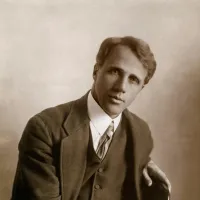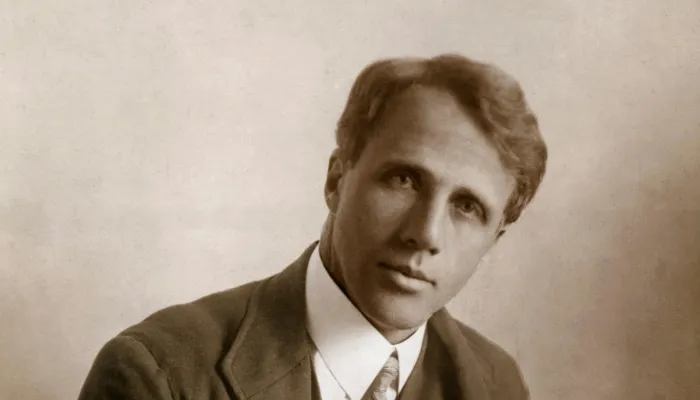Out through the fields and the woods
And over the walls I have wended;
I have climbed the hills of view
And looked at the world, and descended;
I have come by the highway home,
And lo, it is ended.
The leaves are all dead on the ground,
Save those that the oak is keeping
To ravel them one by one
And let them go scraping and creeping
Out over the crusted snow,
When others are sleeping.
And the dead leaves lie huddled and still,
No longer blown hither and thither;
The last lone aster is gone;
The flowers of the witch hazel wither;
The heart is still aching to seek,
But the feet question “Whither?”
Ah, when to the heart of man
Was it ever less than a treason
To go with the drift of things,
To yield with a grace to reason,
And bow and accept the end
Of a love or a season?
Even after you’ve jumped all the fences, climbed all the hills, and looked at the world, it can be hard to accept how you feel…
- What season is this poem set in? How can you tell?
- What does the title refer to? What or who is reluctant in this poem?
- Frost wrote this poem after his future wife initially rejected his proposal of marriage. Devasted, Frost considered suicide. What images in this poem speak to the idea of depression and suicide?
- “Reluctance” is composed of four stanza-long sentences. The first two sentences end in periods, but the last two sentences end in question marks. How does this shift the mood of the poem?
- “Reluctance” is composed with a number of caesuras (rests or pauses in a line), some marked by punctuation, and others not. These pauses help to mitigate the powerful measure and rhyme scheme of the poem. Where can you hear pauses in the lines? How could these rests impact how the meaning and tone of the poem are conveyed in a recitation?
- Write a poem about something of great emotional significance to you but do not say what it is explicitly. Set the poem at the beginning or end of a season.
Useful Links
Hear Robert Frost read “Reluctance”: https://www.youtube.com/watch?v=hXYf8bT9apk





